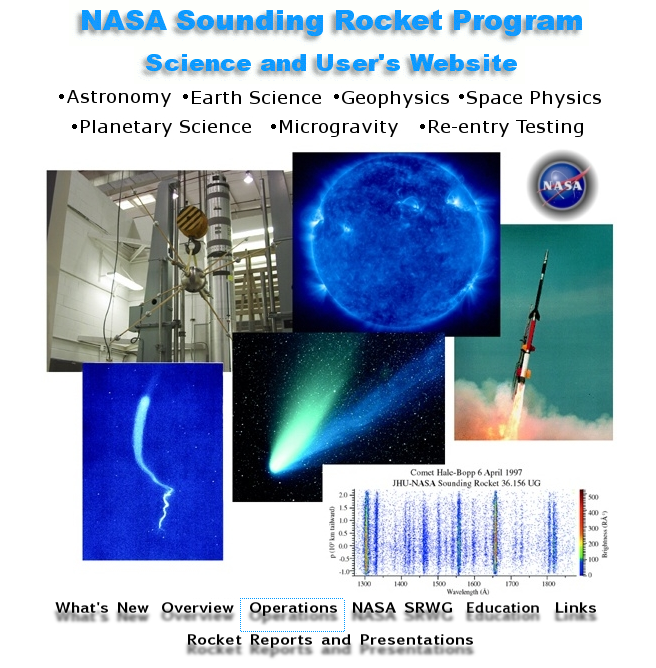[SatNews] "...prime industrial partner to NASA and our team looks forward to adding to the current 40 consecutive successful mission record with up to another 20 launches in 2014."
Orbital Sciences Corporation (NYSE: ORB), one of the world’s leading space technology companies, announced today that Orbital's NASA Sounding Rocket Operations Contract II (NSROC II) team at Wallops Island, Virginia recently completed its 40th consecutive successful mission over the last 24 months for NASA’s Sounding Rocket Program (NSRP). Orbital began operations as the NSROC II prime contractor in October 2010 and has completed a total of 57 missions in the last three years. The NASA program performs suborbital launch missions in support of astronomy, geophysics, space physics, and Earth and planetary science investigations for NASA's science disciplines. Science and engineering research missions are also conducted for NASA centers and the Department of Defense. Recent missions include the successful Far-UV imaging of the Comet C/ISON and a high-resolution spectrum survey of the atmosphere of Venus.
 “The NSROC II program offers a practical and cost-effective method to develop and refine space science technologies for their eventual use aboard satellite and interplanetary platforms," said Senior Program Director Joe Schafer of Orbital's Technical Services Division (TSD), which leads the NSROC II program. “We are very pleased with the program’s success since we became the prime industrial partner to NASA and our team looks forward to adding to the current 40 consecutive successful mission record with up to another 20 launches in 2014.”
“The NSROC II program offers a practical and cost-effective method to develop and refine space science technologies for their eventual use aboard satellite and interplanetary platforms," said Senior Program Director Joe Schafer of Orbital's Technical Services Division (TSD), which leads the NSROC II program. “We are very pleased with the program’s success since we became the prime industrial partner to NASA and our team looks forward to adding to the current 40 consecutive successful mission record with up to another 20 launches in 2014.”The NSROC II launch manifest currently includes 55 missions with an average launch rate of about 20 missions per year. These missions are supported by approximately 100 Orbital employees plus 70 subcontract professionals with a primary base of operations at NASA’s Wallops Flight Facility, augmented by engineers and technicians at the White Sands Missile Range in New Mexico.
Orbital is responsible for planning, coordinating and carrying out research rocket missions from locations in the U.S. and around the world. In addition to the launches from Wallops, research rocket missions have flown from White Sands Missile Range, New Mexico; Poker Flat Rocket Range, Alaska; Naval Air Station Point Mugu, San Nicholas Island, California; Barking Sands, Hawaii; Puerto Rico; Norway; Sweden; Marshall Islands; Australia; Greenland; Brazil; Canada; and Peru.
Orbital develops and manufactures small- and medium-class rockets and space systems for commercial, military and civil government customers. The company’s primary products are satellites and launch vehicles, including low-Earth orbit, geosynchronous-Earth orbit and planetary spacecraft for communications, remote sensing, scientific and defense missions; human-rated space systems for Earth-orbit, lunar and other missions; ground- and air-launched rockets that deliver satellites into orbit; and missile defense systems that are used as interceptor and target vehicles. Orbital also provides satellite subsystems and space-related technical services to government agencies and laboratories. More information about Orbital can be found at.

